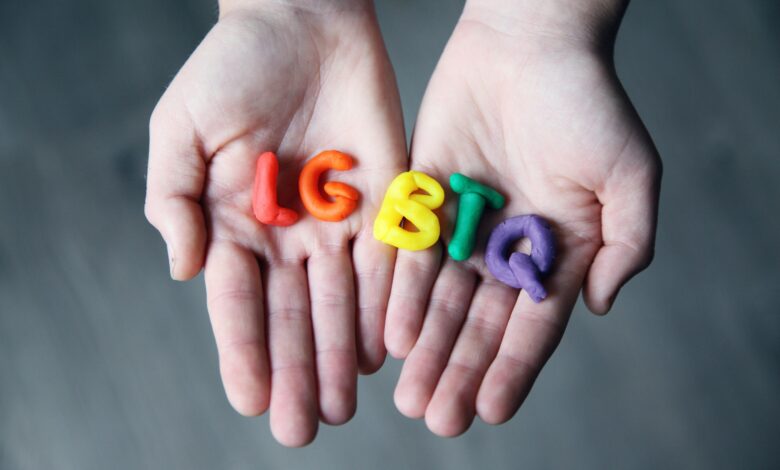When Marriage Equality Meets Divorce Reality

Legal recognition of same-sex relationships has been a vital step toward equality, but separation and divorce remain emotionally and legally complex experiences for many LGBTQ+ individuals. While the rights to marry and raise families have expanded, the systems designed to support people through relationship breakdowns often lag behind. Challenges can arise from outdated legal structures, a lack of awareness, or difficulties securing parental and financial rights, especially for couples whose relationships predate legal recognition.
Navigating divorce within the LGBTQ+ community involves added emotional and logistical weight, from confirming parental roles to dividing shared assets accumulated before marriage became legal. For families in Manchester and across the UK, finding legal support that accounts for these nuances is essential.
What Legal Hurdles Do LGBTQ+ Couples Face During Separation?
Many couples need legal clarity when separating, particularly if they were together long before marriage equality came into effect. Some issues, like the recognition of property acquired before legal marriage or the treatment of long-standing financial contributions, are not always straightforward.
Access to experienced divorce lawyers who understand LGBTQ+ family dynamics is important at this stage. Professionals familiar with these cases can help manage legal grey areas, such as establishing financial claims from time spent together before the law acknowledged the relationship.
Parental rights also remain a significant concern. Without formal adoption or parental responsibility agreements, non-biological parents may have difficulty maintaining a role in their child’s life post-separation. The law doesn’t always reflect the practical realities of modern parenting structures, which is why working with Manchester divorce lawyers who are well-versed in LGBTQ+ family issues can make a significant difference.
Jurisdiction can also add complexity. Although marriage equality is now consistent across the UK, divorce laws and court approaches may differ depending on where proceedings take place. Couples who married in one region but live in another could face additional administrative or procedural challenges when separating.
How Can Child Custody Be Managed Fairly?
Parenting arrangements after a breakup are often among the most sensitive issues in any divorce. For same-sex couples, especially those without formal adoption documentation, the risk of being excluded from a child’s life is much higher. Courts generally aim to prioritise the child’s best interests, but inconsistent interpretations of parenthood can affect decisions.
Courts sometimes favour birth parents unless there’s strong documentation or evidence of the other parent’s ongoing involvement. It’s helpful to prepare a record of caregiving responsibilities, from school drop-offs to medical appointments, as this can demonstrate a consistent parenting role.
Disputes involving donor agreements or surrogacy can further complicate matters, especially when those arrangements were made informally or before same-sex parenting was widely acknowledged in law. Without proper paperwork, informal promises may carry little weight.
Manchester family solicitors with expertise in same-sex parenting disputes can help clients gather the appropriate evidence and present a compelling case, helping to protect the emotional bonds between children and their caregivers.
What Steps Can Protect Parental Roles and Rights?
Establishing legal parenthood from the outset is one of the most effective ways to reduce conflict during a breakup. Second-parent adoptions and parental responsibility agreements provide vital legal protection for non-biological parents.
In addition, detailed parenting plans can help prevent misunderstandings. These documents outline responsibilities and expectations for both parents, including decisions about schooling, healthcare, holidays, and daily care routines. The more thorough the agreement, the easier it is for courts to recognise and uphold balanced parenting arrangements.
Mediation is often a productive route for families looking to avoid court. It creates a neutral space where both parents can express their needs and agree on shared solutions. Children benefit most when both parents remain actively involved in their lives, and mediation supports that outcome without escalating conflict.
How Is Money and Property Divided?
Financial complications can surface quickly during divorce, particularly when same-sex couples have shared property or assets that predate their legal marriage. Items purchased or savings accumulated before legal recognition may be treated differently than assets obtained after marriage. For unmarried partners, these assets may not be legally shared at all, depending on the situation.
Pension and retirement funds can be especially tricky. Some pension schemes calculate entitlements based only on the legal length of the marriage, not accounting for years lived together beforehand. This can result in unfair outcomes unless properly challenged.
Tax considerations also deserve attention. Couples previously ineligible for joint financial benefits may now face unexpected tax consequences. Transfers of assets, especially property, may trigger capital gains tax if not structured correctly.
What Mental Health and Community Support Is Available?
The emotional toll of separation is significant for any couple, but LGBTQ+ individuals often carry additional burdens, such as concerns about discrimination, social acceptance, or losing community support. Accessing mental health services that understand these experiences can be a lifeline during periods of transition.
Community groups like Rainbow Families and national organisations like Switchboard offer peer support, counselling referrals, and safe spaces to share experiences. In Manchester, local LGBTQ+ hubs offer regular events and workshops tailored to those navigating family changes.
Building a new routine after a breakup is rarely easy, and for some, reintroducing themselves as a single person within the LGBTQ+ community can be unexpectedly difficult. Support groups often create a judgement-free environment where people can reflect, heal, and grow without isolation.
Manchester divorce lawyers who stay connected to these resources often provide better outcomes for clients. By helping clients find therapists, support groups, and financial guidance, they support recovery beyond the legal aspects of divorce.
What Should You Expect When Moving Forward?
Going through a separation or divorce as an LGBTQ+ individual involves layers of legal, financial, and emotional complexity. Many challenges stem from the gaps in historical legal recognition, which continue to affect parental rights, asset division, and emotional recovery.
Seeking support from Manchester family solicitors with a strong track record in same-sex divorce and family matters makes a difference. Their ability to anticipate potential issues, explain the process clearly, and connect clients with additional services can relieve some of the pressure.
It’s also important to find legal professionals who approach each case with sensitivity and respect. Navigating separation is hard enough, no one should have to worry about bias or misunderstanding from those helping them through it.
With the right legal support and access to inclusive services, LGBTQ+ individuals can move forward from separation with confidence and clarity.
